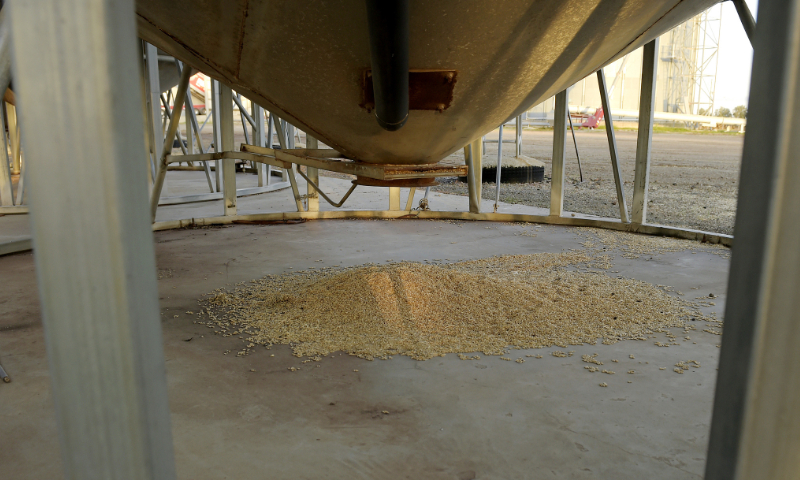
A pile of barley sits beneath a silo at a grain facility in Balliang, Victoria, Australia, on May 18, 2020. Photo: VCG
Australia has been urged to put more trust in China amid an investigation of the barley dispute, instead of demanding a deadline for the process, a Chinese trade expert told the Global Times on Thursday.
The remark came as Australian Trade Minister Don Farrell said in a fresh comment about the matter that Australia expects to hear news within days on China's four-month review of the punitive tariffs on Australian barley exports, Bloomberg reported on Wednesday, citing Farrell.
With just over a week to go until August 11 "deadline", Farrell said in an interview on Thursday that there was "goodwill" between China and Australia, and he was hopeful of a positive outcome from Beijing, the report said.
"Australia should put more trust in China to proceed with the barley investigation in an orderly manner, instead of demanding a deadline at this stage," Chen Hong, president of the Chinese Association of Australian Studies and director of the Australian Studies Centre at East China Normal University, told the Global Times on Thursday.
China is a major buyer of Australia produced barley. Barley is one of the top three agricultural products that Australia exports to China, with about 70 percent of Australia's barley produce sold to China.
In May 2020, China imposed a 73.6 percent anti-dumping duty and a 6.9 percent countervailing duty on imported barley originating from Australia, for a five-year period.
In a public statement, the Chinese Ministry of Commerce said that the conclusion of the anti-dumping investigation revealed that Australia provided subsidies to barley under the "Murray Darling Plan," which is a household subsidy program. It resulted in significant harm to China's barley industry, and there is a causal relationship between the subsidies and the actual damage caused.
In April, amid thawing ties, the two countries reached a consensus on resolution of the barley dispute under the framework of the World Trade Organization. On April 14, China's Ministry of Commerce announced that it would start a review on the anti-dumping and countervailing measures on April 15.
While Chinese officials have not publicly released a specific timeline for the review process, foreign media reports suggested that the two sides agreed that China would complete the review in three months, but a possible fourth would be allowed if required.
In July, China requested a one-month extension for the review process, which both sides agreed to, according to some media reports.
"The barley dumping case is, in fact, based on an evidence-based investigation, and therefore, China's request for a one-month extension demonstrates a serious attitude and approach," Chen said, noting that "in any case, we must approach the probe responsibly since it involves evidence-based data collection, analysis and serious study".
"Given this situation, our thorough and responsible handling of Australian goods aligns with public expectations," Chen said, urging the Australian side to put more trust in China.
Australia had previously mentioned finding new markets overseas, but the barley it sold in the Middle East and elsewhere was mainly used for animal feed, which had lower quality levels and prices, compared with the barley sold to China.
"We hope that Australia can handle the Chinese market properly and cooperate with China in this investigation with a serious and responsible attitude. The prospects are undoubtedly promising," Chen said.




